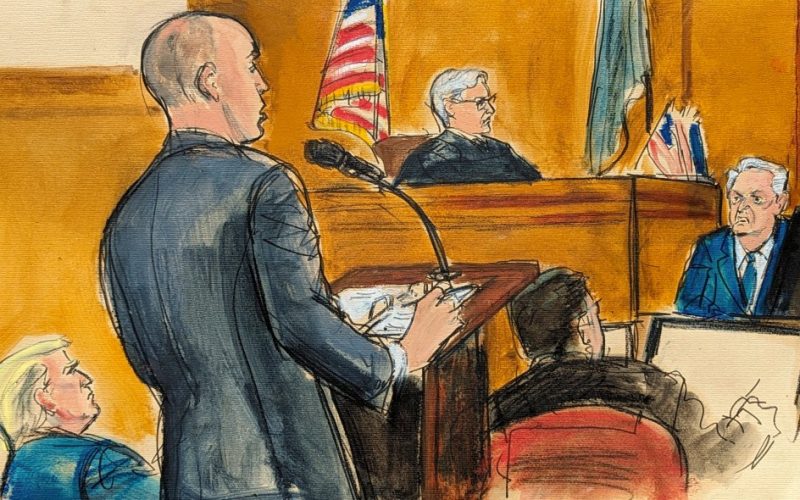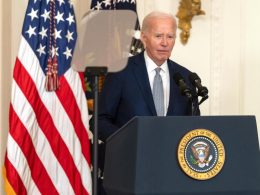Assuming the U.S. Supreme Court doesn’t stop it, Donald Trump will be sentenced tomorrow morning by Acting Manhattan state Supreme Court Justice Juan Merchan for being convicted of 34 felony counts. In the interest of instilling confidence in the proceeding and the rule of law, it is imperative that the sentencing be televised.
This spring, I was one of a tiny number of people who was able to witness Trump’s criminal trial. What I saw was vastly different than the “unconstitutional crusade” against him as described by Trump, his lawyers, and his surrogates. Rather, I saw prosecutors building a reasonable, yet convincing case, a jury paying close attention to the evidence, and Merchan treating Trump with respect as he went out of his way to ensure a fair trial.
We already know the likely outcome of sentencing. Merchan said in his Jan. 3 decision that he is not inclined to punish Trump in any fashion, and that “an unconditional discharge appears to be the most viable solution.”
Nonetheless, the nature of this proceeding is unprecedented, and unfortunately, unless Merchan issues a last-minute order allowing audio-visual coverage, the American public will not be able to witness it. Rather, like the trial itself, it is slated to be held in quasi-secret fashion, with only a limited number of journalists, and a token attendance of fewer than 20 members of the public.
This minimal attendance serves to feign compliance with New York Judiciary Law, which states, “The sittings of every court within this state shall be public, and every citizen may freely attend the same.” Further, New York State court policy is “to facilitate the audio-visual coverage of court proceedings to the fullest extent permitted” to maintain public access and to preserve public confidence in the judiciary.
In the first week of the trial, I arrived at Manhattan Criminal Court at 5:30 a.m. and was able to be one of only six members of the public to gain admission to the actual courtroom.
Several weeks later, in order to observe the cross-examination of Michael Cohen, I arrived at 9 the night before and camped outside through a thunderstorm to get one of the last of only a dozen passes to the “overflow” room, where I was able to watch the trial on television. Nonetheless, on both occasions, I was one of a tiny number of people able to observe the proceedings first-hand.
I saw witnesses provide exhaustive details of Trump’s false filings in his scheme to bury news about his alleged affair with pornstar Stormy Daniels prior to the 2016 election. First, I saw David Pecker, former publisher of the National Enquirer, testify about the Enquirer’s support of Trump’s campaign. Next, I saw Cohen give convincing responses while being cross-examined by Trump’s lawyers.
Unfortunately, Trump took advantage of the vacuum created by the lack of audio-visual coverage of the trial. Without trial footage, his press conferences from the courtroom hallway became the video clips the public was most likely to see. Further, his supporters, including senior government officials, filled courtroom seats set aside for the defense.
Speaker of the House Mike Johnson and others used this access to delegitimize every part of the proceeding, calling the trial a sham, questioning witnesses’ credibility, and accusing Merchan of bias. And to this day, in response to the sentencing decision, Trump and his spokesperson Steven Cheung call the trial a “hoax” and a “witch hunt,” attacking the integrity of the proceedings and of our judicial system.
In June, a coalition of news organizations submitted a formal request to Merchan to allow live and recorded pool coverage of the sentencing hearing. Per their letter, “The eyes of the country, and indeed the world, are upon these proceedings. It is imperative that the American public be able to see and hear these proceedings for themselves.” Merchan never responded to this request.
As the court already provides a video feed to one overflow room, it makes no sense that only a small handful of people are able to watch sentencing on TV, and that the feed is not being made public.
It is essential that Merchan provide not just a small number of reporters and a tiny number of members of the general public but all citizens access to the criminal sentencing of a former and soon to be inaugurated president.
Robbins owns Upper West Strategies, a NYC-based small business that runs internship programs.








